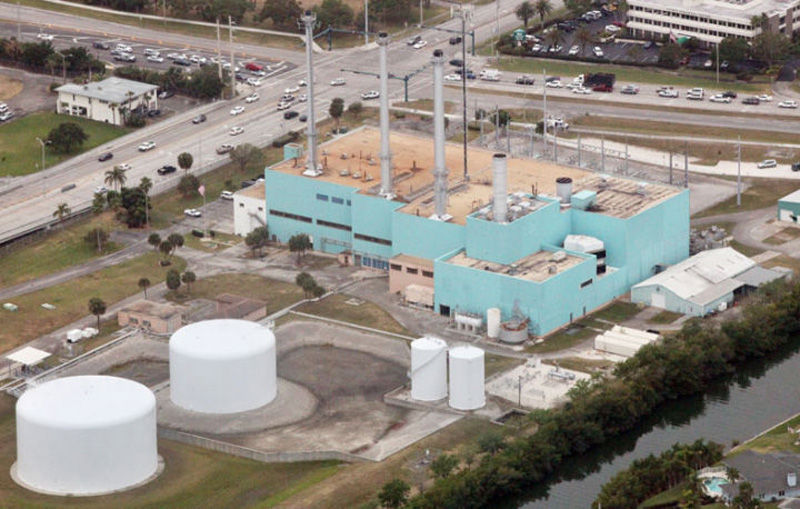INDIAN RIVER SHORES — The Indian River Shores Town Council members last week issued clear marching orders that the town needs a good lawyer – for what they did not specify – to start a legal battle to extract the Shores’ residents from Vero’s electric utility.
The action was taken with little discussion. Noticeably absent was the harsh rhetoric from the previous week’s meeting born out of the council’s frustration with the dimming prospects of getting lower electric rates any time soon because of the stalled sale of Vero electric to Florida Power & Light.
This time around, there were no grand speeches about Vero’s high electric rates or the need to represent the economic interests of the Town should a sale of Vero electric to FP&L indeed fail. Whether the tamped-down dialogue represents a back-pedaling by Shores officials, or simply a shift from anger to resignation to the sad reality that the Town might get dragged into years of costly legal action was unclear.
Still, Town Manager Robbie Stabe can spend up to $10,000 to engage a specialized utility attorney – or an attorney to deal with any other issues, for that matter. When asked if the money was intended to be used specifically on the electric issue, Mayor Brian Barefoot declined to be nailed down. He and Councilman Dick Haverland clarified the direction of the council was, at this point, only to study the Town’s options.
Last month, the council voted to empower Councilman Tom Cadden and Bill Grealis, the town’s representative on the Vero Beach Utilities Commission, to meet with an attorney and report back to council as to what next steps might be called for. Prior to last week’s meeting, Cadden said no sit-down occurred, but that the approval of the funds to retain an attorney what “what he hoped” would come out of last Thursday’s meeting.
The initial suggestion was for the town to attempt to re-establish a relationship with a Stuart law firm it had used five years ago to look into utility matters. Now, Stabe is tasked with vetting a handful of law firms that are a good fit with the town’s needs.
The Shores, combined with mainland Indian River County and South Beach residents outside the Vero city limits represent 61 percent of Vero’s nearly 34,000 electric utility customers and possibly up to 70 percent of the city’s electric revenues. Each year, the city of Vero Beach skims nearly $8 million in direct transfers to the general fund and administrative charges to the electric utility’s departments. That cash, which is about twice what Vero collects in property taxes from its 15,000 city residents, currently subsidizes the Vero Beach Police Department as well as recreation programs and city hall operations.
Vero has 30-year franchise agreements with the Shores and the County which expire in a couple of years, plus a territory granted by the state, based on the fact that no other utility was equipped to provide service to outside customers back in the 1970s and 1980s, which is no longer the case.
Still on the docket, but on hold, is a complaint on file with the Florida Public Service Commission asking for a review of Vero’s electric utility territory and ultimately to carve the customer base up, allowing customers outside the county to choose a lower-cost provider, namely FPL. Should the city lose its territory outside Vero municipal borders, it could have a devastating effect on city finances.
Utility activists Dr. Stephen Faherty and CPA Glenn Heran have estimated it would cost at least $160,000 in legal fees to dust off, re-write and litigate the existing complaint filed with the PSC some five years ago. Should the Shores wish to join as a party to that complaint, or file a separate complaint on behalf of the town, the $10,000 approved last week would surely be a mere down payment on the actual costs of legal services.
Mayor Barefoot seemed to indicate cognizance of a much larger potential investment when he termed the $10,000 as a “deposit for services.”
Heran, who attended last week’s meeting but did not speak, said afterward, “I’m pleased to see the Shores take this definitive step in executing on legal options as a sovereign entity,” Heran said. “The best possible scenario would be if the Shores could work in tandem with the County’s efforts to prosecute the PSC petition and other legal remedies to free their constituents from economic serfdom.”
The Board of County Commissioners has approved nearly $80,000 to hire lobbyists Ballard Partners to explore various legislative options, and several years ago retained the Tallahassee law firm of Nabors Giblin & Nickerson to work on ongoing electric, water and wastewater utility issues.
Meanwhile, the Vero Beach City Council voted last month to add utility attorney Robert Scheffel “Schef” Wright to its team, at the behest of the Florida Municipal Power Agency co-op which Vero is trying to exit. Wright has a wealth of experience representing government-run power systems and trying rate cases before the PSC.

